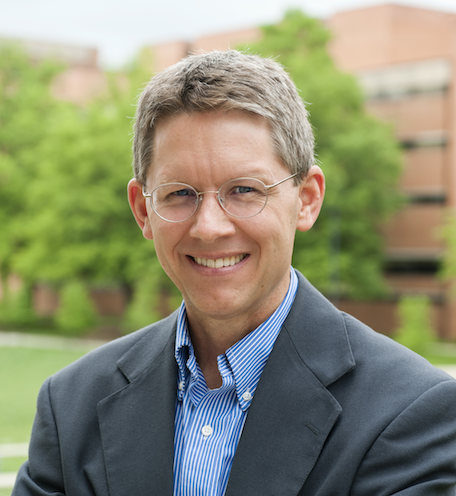 Please join Lab Director Mike Witherell for a conversation with Dr. Michael Summers. Dr Summers is the Robert E. Meyerhoff Chair for Excellence in Research and Mentoring and a distinguished professor of chemistry and biochemistry at the University of Maryland, Baltimore County. Dr. Summers will speak about promoting inclusive excellence in STEM.
Please join Lab Director Mike Witherell for a conversation with Dr. Michael Summers. Dr Summers is the Robert E. Meyerhoff Chair for Excellence in Research and Mentoring and a distinguished professor of chemistry and biochemistry at the University of Maryland, Baltimore County. Dr. Summers will speak about promoting inclusive excellence in STEM.
Date: Thursday, August 17 (add it to your calendar)
Time: 9 – 10 am PT
UMBC’s Meyerhoff Program: Promoting Inclusive Excellence in STEM
The Meyerhoff Scholars Program at UMBC is a nationally recognized model for increasing retention and academic performance of URM undergraduates in STEM and for preparing those undergraduates to pursue and succeed in graduate and professional programs. Meyerhoff includes students of all ethnicities and backgrounds who are interested in issues of diversity and inclusion in STEM. Since 1993, the program has graduated more than 1400 students, of which more than 360 alumni have earned PhDs, 66 have earned MD-PhDs, 180 have earned MDs, and 300 have earned Master’s degrees (some on the way to a PhD). An additional 340 alumni are currently enrolled in STEM graduate and professional programs. Qualified high school students who declined Meyerhoff offers and attended other universities were half as likely to graduate with a STEM degree and approximately 5 times less likely to pursue or complete STEM graduate degrees. Despite being medium sized university with a modest population of African American students (~12,000 undergraduates, 14% African American) UMBC is the top undergraduate school of origin of African American STEM PhD and M.D.-Ph.D. recipients in the U.S. To determine if Meyerhoff like outcomes could be achieved at other Majority research institutions with different URM compositions, geographies, institutional sizes, and cultures, but with like-minded leadership, we established partnerships with the University of North Carolina, Chapel Hill and Pennsylvania State University. Five-year outcomes indicate that the program can be adopted at other institutions, with outcomes immediately matching or exceeding the Meyerhoff Program. Approaches that leverage lessons learned from successful programs like Meyerhoff with inter-institutional partnering could serve as a general paradigm for expanding inclusive excellence in STEM.
Dr. Summers will also give a talk on the Mechanism of HIV-1 Genome Selection at 11 am on August 17th. Please click here to add it to your calendar.
Bio:
Dr. Michael F. Summers received his A.A. degree in Chemistry from St. Petersburg Junior College (1978), B.S. in Chemistry from the University of West Florida (1980), Ph.D. in Bioinorganic Chemistry from Emory University (1984) and was a postdoctoral fellow at the NIH (1984-1987) before joining the faculty at the University of Maryland Baltimore County (1987-present). In 1994 he was appointed as an Investigator with the Howard Hughes Medical Institute, and in 2016 he was elected to the National Academy of Sciences. He was the recipient of two NIH MERIT Awards for studies of HIV structural biology. Currently, Dr. Summers is an Associate Editor for the Proceedings of the National Academy of Sciences and the Journal of Molecular Biology and is a member of the editorial advisory board of the Journal of Biomolecular NMR. Dr. Summers’ research focuses on NMR studies of proteins, RNA, and macromolecular interactions associated with HIV-1 genome packaging and virus assembly.
His laboratory typically includes large numbers of students from diverse backgrounds, and he has led efforts to develop programs for retaining minority students in the sciences. He directed an NIH-funded diversity program for more than 20 years that grew to more than 100 enrolled URM PhD students annually. Dr. Summers is a recipient of the Ruth Kirstein Award of the American Society of Biochemistry and Molecular Biology, the Carl Branden award of the Protein Society, the Emily M. Gray Mentoring Award of the Biophysical Society, the ASBMB Award for Exemplary Contributions to Education, the Mentor Award of the American Association for the Advancement of Science, American Society for Microbiology Hinton Award for Mentoring, and the White House Presidential Award for Science, Mathematics and Engineering Mentoring.
